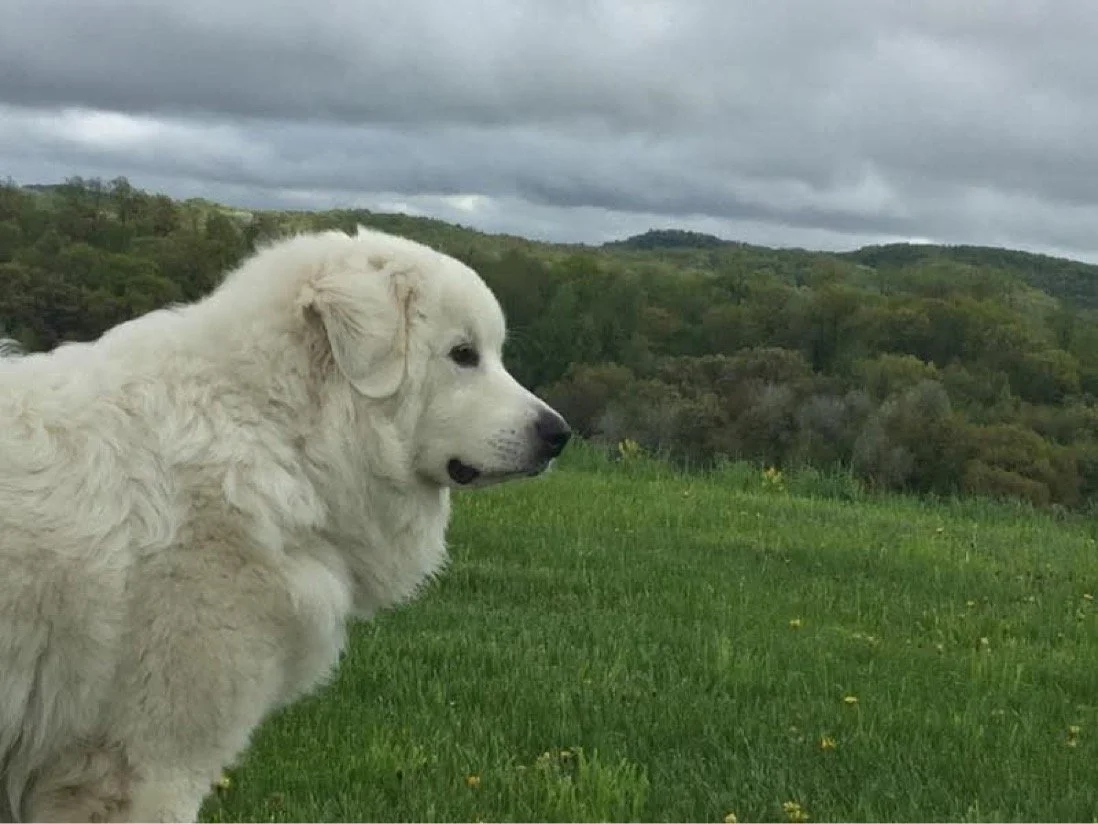Guardian Breeds: From Chaos to Calm
Guardian breeds are often surrounded by myths—some see them as untameable, only suited for work, while others believe they can seamlessly transition into being house pets or working dogs. The reality is much more nuanced. Let’s bust some of these myths using compassion, experience, and a healthy dose of truth.
Busting Myths and Rudy’s Success Story
Myth #1: Guardian Dogs Can’t Be Pets
Busting the Myth:
Many believe guardian dogs—like Great Pyrenees or Cane Corsos—are too independent or strong-willed for family life. The truth is: guardian breeds thrive in homes when their needs are understood and fulfilled.
The Truth About Guardian Breeds:
1. Biological Needs: Exercise, nutrition, and proper veterinary care.
2. Mental Stimulation: Games, puzzles, and scent work to meet their cognitive needs.
3. Building Trust Through Connection: Use positive reinforcement, not punishment, to build security and calm behavior.
4. Consistency in Training: Family-wide rules prevent confusion and reinforce desired behaviors.
Myth #2: Failed Pets Can Transition to Working Dogs
The Reality:
While it may seem logical that a failed house pet could succeed in a working role, working dogs require natural instincts, proper training, and emotional stability.
Why This Doesn’t Work:
• Specialized Training: Working roles demand structured, early training that pets often lack.
• Instinct Gaps: Traits like guarding or herding are bred into working dogs and cannot be “taught” alone.
• Behavioral Challenges: Pets with stress-related behaviors need healing, not pressure to perform.
Myth #3: Failed Farm Guardians Can’t Be House Pets
The Truth About Farm Guardians:
Farm guardians who struggle on farms can adapt to homes with the right approach:
1. Gentle Socialization: Slow exposure to new environments builds confidence.
2. Physical and Mental Outlets: Their high energy and independence must be met with proper exercise and cognitive challenges.
3. Structured Trust-Building: These dogs need clear expectations and a calm environment.
Rudy’s Journey: A Success Story
Meet Rudy:
Rudy, a Great Pyrenees, showed classic challenges: resource guarding, growling under stress, and difficulty adapting to family life. Through a holistic, trauma-informed approach, Rudy’s family addressed:
• Resource Guarding: Teaching “trade up” for stolen items and using environmental management.
• Mental Stimulation: Scent games and cognitive activities to fulfill his instincts.
• Family-Wide Consistency: Ensuring clear rules for all interactions.
The Results: From Chaos to Calm
Two years later, Rudy was* a loving, well-adjusted family companion. His transformation proves that guardian breeds:
• Thrive in Homes: With structure, trust, and understanding.
• Can Overcome Challenges: Addressing behaviors holistically leads to lasting success.
• Bring Purpose and Joy: Rudy’s skills carried over to other dogs, showing the ripple effect of compassionate training.
*) Unfortunately Rudy had an aversive reaction to a Followup vaccine and passed.
Rewrite Your Dog’s Story
If Rudy’s story resonates, know that your dog’s challenges can be overcome. Guardian breeds need connection, not correction—and with the right support, they can thrive in any home.
Book a discovery call today: https://holisticdogtraining.as.me/Short-Web.



